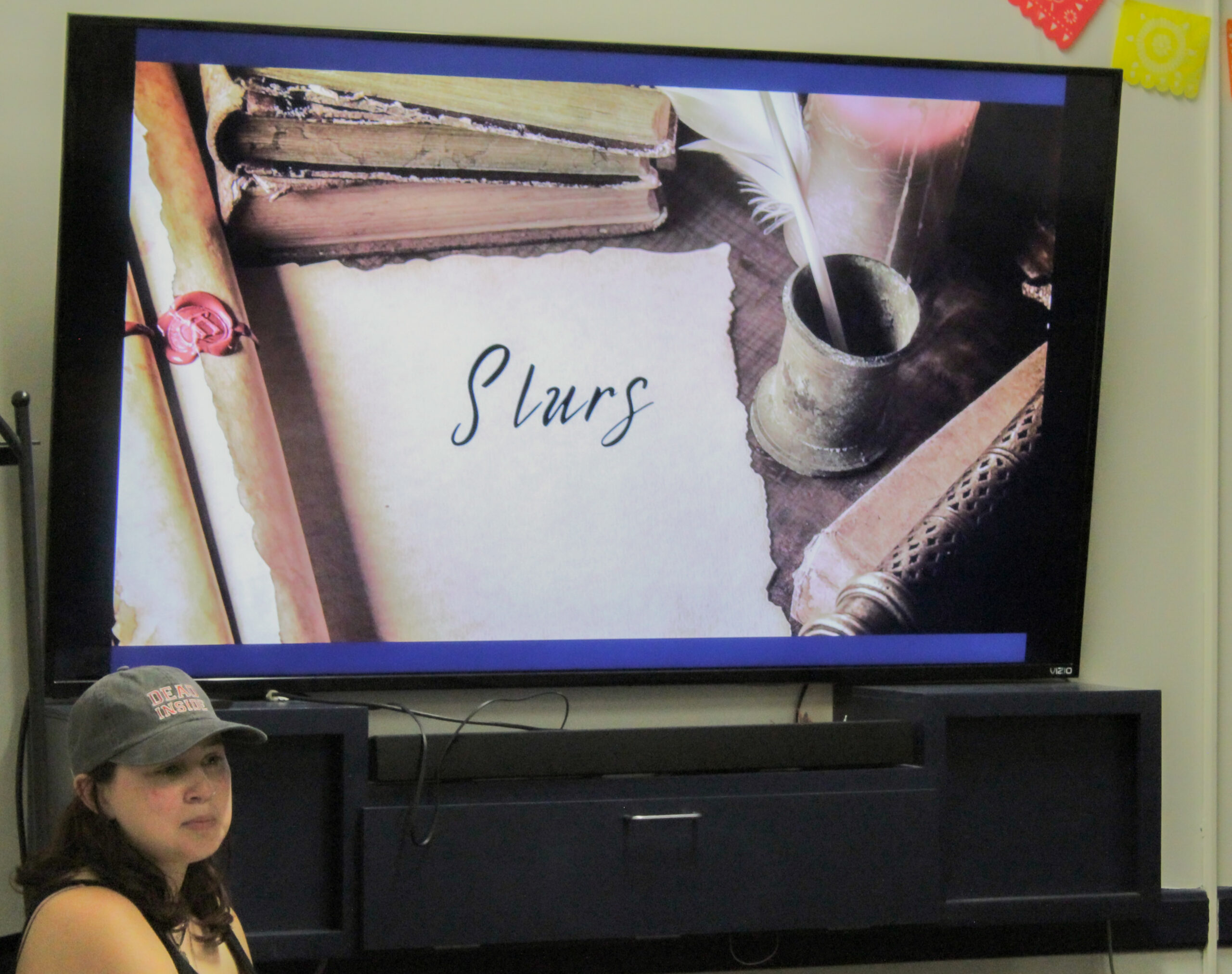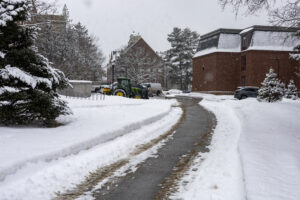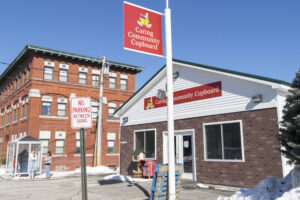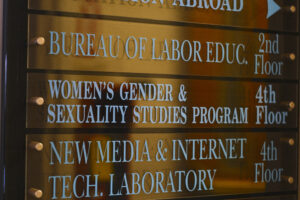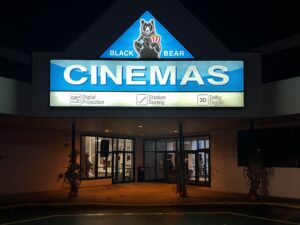On Tuesday, Oct. 7, Kris Beeche Penge of the Multicultural Student Center led a presentation and discussion session about slurs and students’ experiences with them. The discussion had two people other than our news photographer and myself — Jules Hathaway, a graduate now seeking employment at the university after returning for a masters’ degree, and Anila Karunakar, Director of the Multicultural Student Center (MSC.)
After introducing ourselves, we quickly launched into discussion about the definition of a slur and how the use of slurs has impacted us in our personal lives. Our personal experiences with slurs varied; most of us had never been on the receiving end of them in any major way and had at most been incensed on another person’s behalf when they were called slurs — with one big exception.
Hathaway’ past experiences living in Veazie were by far the most negative. “When we came to Veazie,” said Hathaway, “we moved into a trailer park because that was what we could afford. But Veazie’s very classist and ‘trailer park trash’… people used to call me that.” Such a slur particularly harms children of mobile home dwellers who are “shoehorned” into a “predetermined” future of low achievement and low career attainment. This is not a skin-deep characterization that can be shaken off with a little bit of open-mindedness, either Hathaway’ son, now an accomplished university-educated engineer, was only one of several children that the school board saw fit to transfer to special education without sufficient evaluation purely on the basis of being raised by lower-income families.
All of this, however, did not pre-empt an attempt to run for the school board to correct said injustices.; Hathaway was finally elected to the position after spending much effort campaigning with a handpicked professional-looking outfit and having in-depth conversations with dozens of the townspeople. Sworn-in in a snap election called due to the previous officeholder resigning, Hathaway would have been cheated out of the role anyway if it wasn’t for the villagers, enamored by the campaign, crying foul during the decisive meeting and ordering the committee to play by its own rules. The implication is that most of this effort would not have been necessary were it not for harmful stereotyping.
Penge mentioned that the motivation for the awareness-raising event came from her personal experience recently hearing a group of girls using the “R-word” casually and thoughtlessly when in a dormitory bathroom. Shortly after, Karunakar reflected on a moment of personal growth when somebody told her that “gypped,” a word meaning “cheated out of [something],” was in fact a slur, derived from a nickname for the Roma. Being of Indian descent – from a country where the Roma are not stereotyped as thieves – she never made the connection on her own when using the word in the past.
My contribution to the discussion was that I value honesty above all else and dislike “fake tolerance” – I have a harder time dealing with people that have a bone to pick with me but bottle up their feelings or that only express them passive-aggressively, than I do being on the receiving end of hurtful words.
The lack of any overarching call to action among attendees of the presentation should, in my opinion, be seen as a good thing, indicative of a lack of serious problems with incivility on campus and, to a lesser extent, in Maine as a whole.
